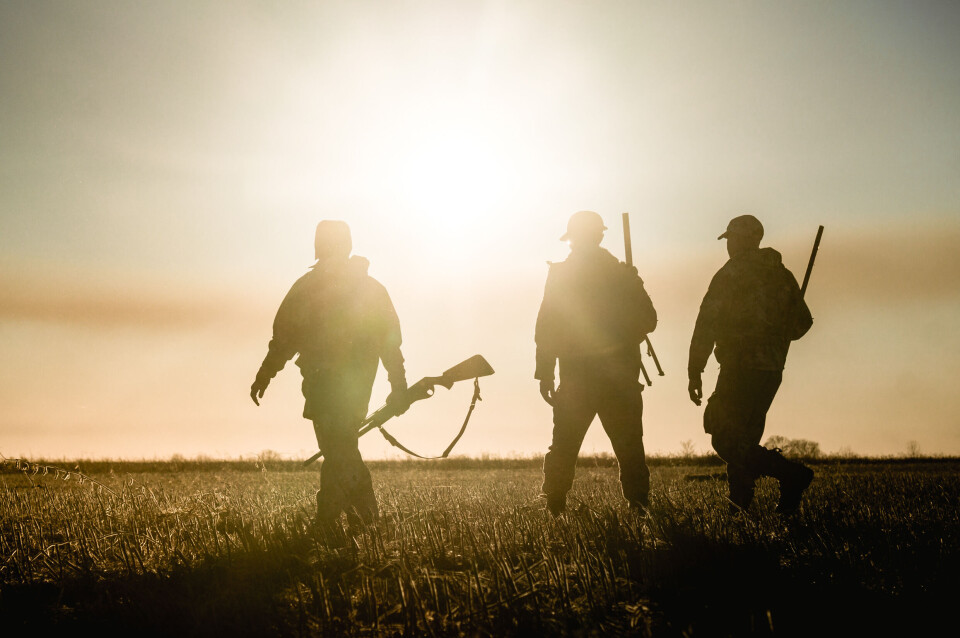-
French Prime Minister confirms use of Article 49.3 to pass budget
Usage opens government up to motion of no confidence but opposition MPs unlikely to find enough support
-
Floor collapses in Paris building leaving 20 injured
Water leaking into the building from balcony is thought to be cause of collapse
-
Homes evacuated and cars submerged as flash floods hit south of France
Alerts continue as schools and roads are closed. Several rivers have burst their banks
Is there a way to check if a hunt is taking place near me in France?
There is no centralised resource containing information about hunt dates and locations but several other ways exist to gain information

When the hunting season begins each year in France, many residents and walkers may wonder whether there is a way of knowing when and where they may be at risk of encountering a hunting party when out in the French countryside.
Unfortunately, there is no single information source which you can consult to check the whereabouts of hunters on a given day but there are several resources that you can use.
Firstly, it is helpful to know when the hunting season starts and ends in your department, as the dates can vary.
You can find more information on variations between departments, as well as any days when local hunting bans may apply, on the Fédération nationale des chasseurs website.
Calendars are also available from mairies, tourism offices, public notice boards and via the Office national des forêts website.
However, seeing as the hunting season normally lasts for about six months, it is not practical to avoid going out into woods or hills until it comes to an end.
Hunters must have a hunting permit – obtained following safety training and an exam – register as gun owners and make sure they are insured..
Their permit must be renewed each year including details of the area over which they intend to hunt – whether that be a single department or the whole country – and the time period in which they will be carrying out their activities. It must then be validated by their local hunting federation before the hunter can start going out.
However, hunters do not need to register their intention to hunt every time they go out unless they are hunting larger animals such as deer, in which case the organisers should have a Registre de battue (Hunt register) with the names and details of the people in their group.
There is therefore no centralised, nationwide information service with information on which hunts are happening where and at what time, and so it is perhaps advisable to get to know hunter habits, perhaps by turning to your local prefecture, your neighbours, your local hunting federations or to other walkers.
These groups may be able to tell you where and when hunts normally take place, which animals are targeted and whether the hunters move in large groups.
This is, of course, not a failsafe method, but it may help you avoid the most obvious stomping grounds.
Read more:La chasse: How to block hunters from using your land in France
Hunters should put up signs to show that a hunt is taking place on paths which cross over the area in question, so it is important to look out for yellow triangular markers reading ‘Chasse en cours’ or ‘Battue en cours’ (Hunt in progress). If you see one, plan another route.
Certain departments also have smartphone apps, including ChasseInfo (Côte-d’Or), Nature safe (Alpes-de-Haute-Provence) and Chasseco (Haute-Savoie), through which walkers can specify an area and find out when and where hunting is permitted. However, it is not clear how regularly these devices are updated.
Hunting is always prohibited within 150m of habitations, and so if you are walking close to a residential area you should not need to worry.
In general, it is advisable to:
- Stay on marked paths where hunters will expect there to be walkers (although the hiker who was recently killed was on one of these).
- Stay close to houses, roads and larger paths
- Make sure that you are clearly visible. Perhaps consider wearing colourful clothes or a high-vis jacket
- If you hear gunshots or dogs barking, try to make your presence known by stepping out into an open space or by speaking. It is important, however, not to startle the hunters
- If you encounter a hunter and are able to speak with them, it could be useful to ask where the hunt is taking place, if there is a large group involved, if there are any areas that you should avoid and for how long
- If you are walking your dog, make sure that it remains close by and will come back to you when called.
Related articles
Hunters use bows and arrows to cull boar in southwest France
Hunter killed by stray bullet during hunt in central France
Hunter, 82, accidentally shot dead by another hunter in Brittany
























